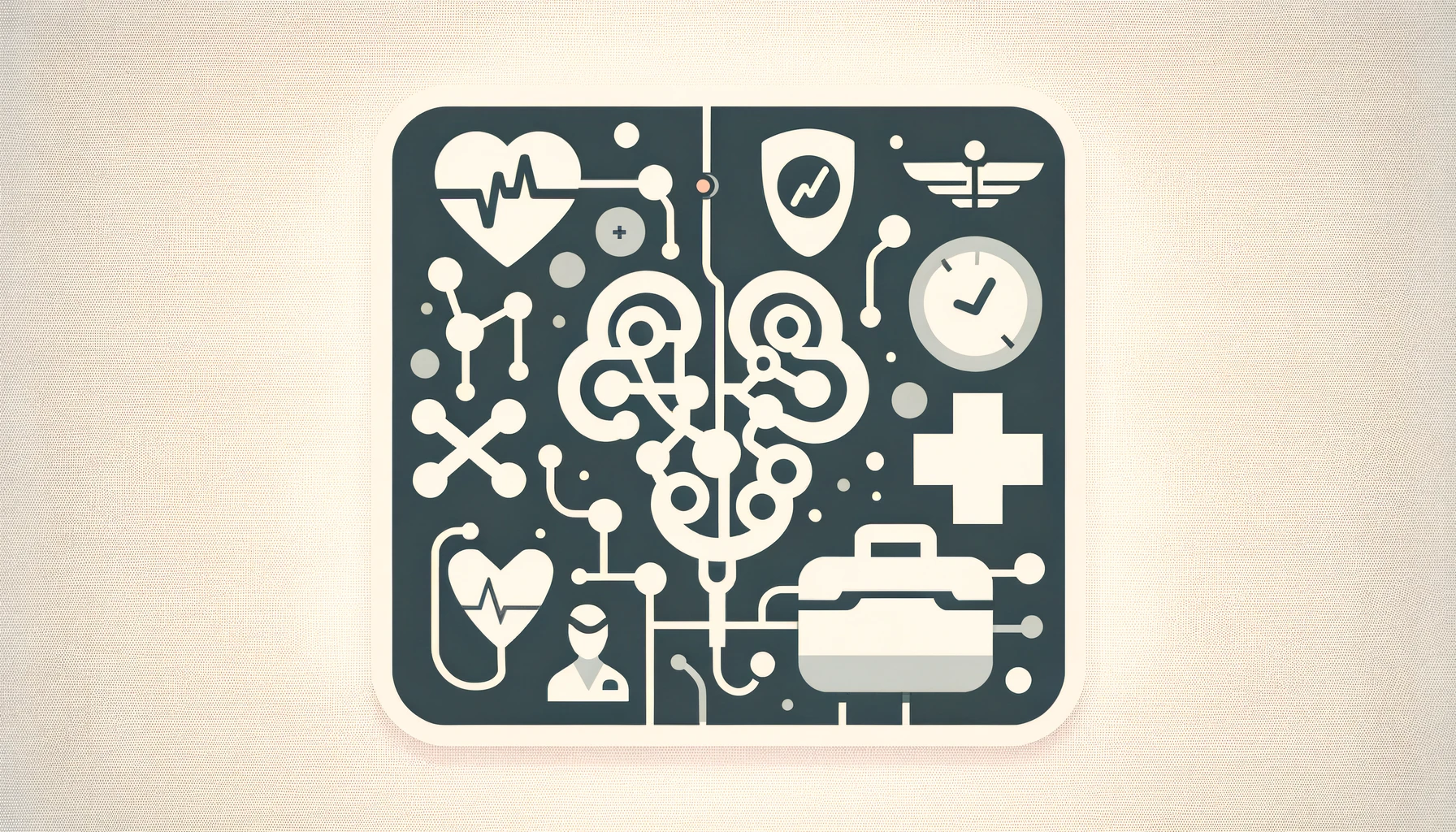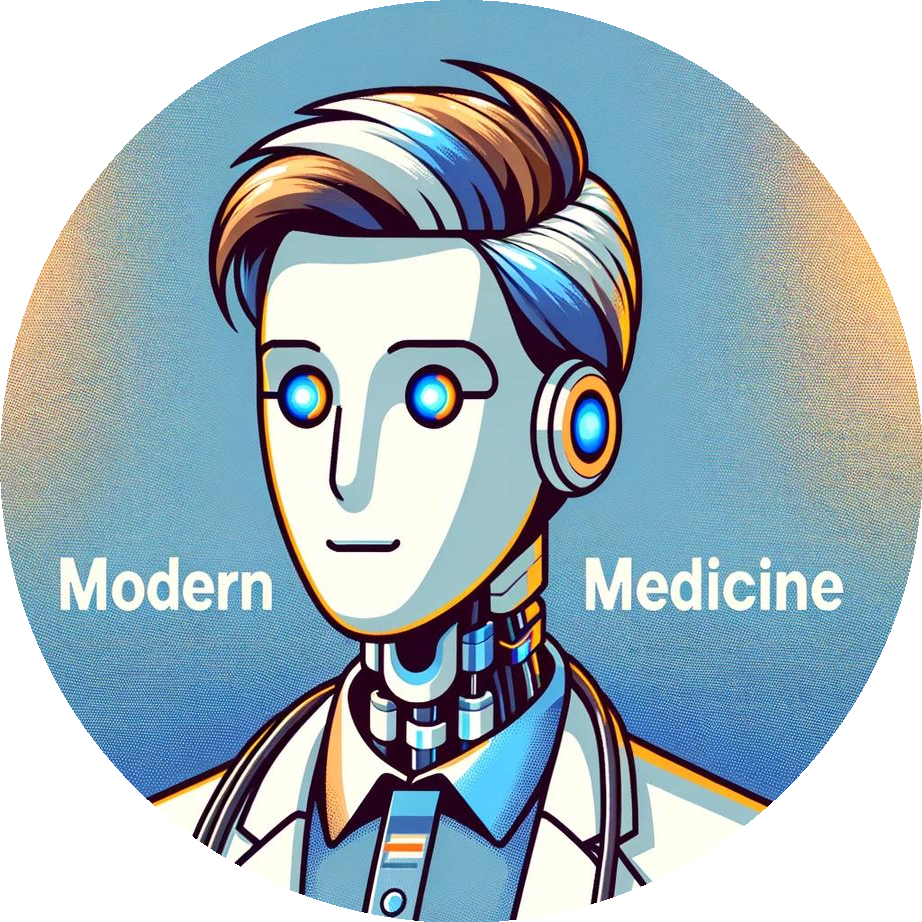Fresh out of a year of dedicated research on AI and machine learning in medicine, I was excited to start medical school to see how AI tools would be integrated into our training. However, I quickly realized how slow the medical school curriculum adapts to the changing times –I can only speak to my experience with confidence, but I have learned from friends at other schools that they are in the same boat.
For some persective, I am about to enter into my clinical rotations –technically 3rd year of med school– and I have not yet encountered anything in my curriculum about artificial intelligence. The closest course offering to AI was a elective course in biostatistics but the instructor decided not to teach regression models because it was ‘out of the scope of what we need to know’ –as a note, regression models are some of the most basic predictive ML models.
Anyway, the focus of this post is not to dwell on the somewhat outdated state of the medical curriculum –a conversation for another day– it is really about the current research/literature on AI in medical education. I am hopeful that once there is sufficient research to show the importance and benefits of AI integration into medical education, the administration at med schools will begin to implement changes across the country. Based on a review of the literature –that I will do my best to summarize below– it is clear that there are not many papers published on the topic as of now.
I am going to cover 3 papers that provide a broad picture of what is known about the state of ai in medical education.
In a study by Civaner et. al., surveying the perception of 3,018 medical students across the US, over 96% of participants expressed their own lack of and need for knowledge and skills regarding AI applications in medicine. Around 95% expressed knowledge gaps about how AI tools could be used to decrease physician errors, and 93% express lacking the training to address ethical problems concerning AI application in medicine. The article has several other insightful stats demonstrating the majority of students expressing an understanding of the importance of AI as tool for reducing errors and improving access to healthcare. Around 50% of students also express fears of AI leading to unemployment or a devaluation of doctors and their profession. Overall, the survey reflect a general lack of education regarding AI technologies which align with my own lived experience so far in medical school. I personally feel that doctors have no need to fear replacement by AI technologies in the near future, but do believe that specific fields like diagnostic radiology and pathology may require less doctors to accomplish the same amount of work with the widespread use of AI tools.
This next study by Li & Qin, surveying 1,243 students in undergrad (Chinese students start their medical training in undergrad) and post-grad across 7 provinces in China found that around 54% of students reported some familiarity with medical AI technology. Given the growing importance of AI tech in medicine, the article authors recommend greater attention towards integration of AI didactics and an emphasis on making the AI related curriculum engaging, entertaining, demonstrating ways to advance their career goals and training outcomes, and enhance the ability to accurately appraise the reliability and credibility of an AI system. It is important to note that the findings of this article cannot be generalized to medical training in the US. Based on the two articles, the first surveying US students and the second surveying Chinese students, it seems that Chinese medical students are more familiar with AI topics and this might just be a consequence of an emphasis on math and computer science earlier on in their education system. Nevertheless, it is clear that many of the same gaps still exist across both medical education systems, and I imagine the same holds true for doctors in training across the world.
The last article I will mention is a systematic review by Sun et. al., on AI in medical education. The study provides a literature review of papers published between 2017-2022 that include key words related to ai in medical education. They found that among medical students, there is a generally postive sentiment towards adding AI courses to the curriculum. The most common specialties publishing papers on AI in medical education include cardiology, surgery, diagnostics, radiology and dentistry with a steady rise in the publications annually in each discipline on the topic. The authors concluded that the quality of research on the topic is currently poor and that there is a great need for interdisciplinary works by experts in healthcare to address this need.
Now that I’ve summarized some of literature on the state of AI in medical education and some of the greatest needs in the curriculum, I just want to go a bit more in depth with what I think will be important to stress in the curriculum. I know that there are already some intro CS/stats course requirements integrated into some med schools like at Harvard, but this is very much the exception rather than the rule across med schools in the US.
As a future physician, I don’t think it is necessary to know how to code in languages like C or Matlab/Octave. Instead, I find learning what is happening from a birds-eye view (i.e., at a high level) seems far more important –this could involve learning how to use differnt packages in python or a jupyter notebook. Being able to understand how to import a tabular dataset, do a little bit of data cleaning using SQL, then using that cleaned dataset for some data exploration and subsequent training of models, checking performance, and reporting outcomes, seems far more useful. Additionally, it would be very useful to motivate learning with fun lectures designed to foster creativity and personal projects similar to what CS50 (the famous intro to CS course offered free online by Harvard) does or just recommending books like ‘Innovators’ by Walter Isaacson that provides some storytelling motivation explaining the connection between logic, math, hardware and software as well as the contributions of prominent names like Alan Turning and Von Neumann to Bill Gates and Steve Jobs, would be so helpful to motivate a consistent interest in learning about AI/ML outside of the medical curriculum.
One last thing I want to mention is the growing role of generative AI as a learning tool in med school. Using Chat GPT or Google Bard for explaining highly technical medical knowledge in a highly accessible way has been so helpful to me and to my colleagues. Though there haven’t been any recommendations from our med school’s administrations to use such tools in our studying, my experience is that most students are already using such technology to enhance their studying, and I believe it is working.
I am very interested to revisit this topic in a year or two to see how the literature matures in this area as well as the medical school curriculum and associated AI tools on the market to assist with learning.
References:
- Citation for the article on AI integration in medical education and its applications:BMC Medical Education. “AI in medical education: medical student perception, curriculum recommendations, and design suggestions.” Retrieved from BMC Medical Education.
- Citation for the study on medical AI acceptance among students:PubMed. “Artificial intelligence for healthcare and medical education: a systematic review.” Retrieved from PubMed.
- Citation for the study on medical students’ perceptions of AI:BMC Medical Education. “Artificial intelligence in medical education: a cross-sectional needs assessment.” Retrieved from BMC Medical Education


